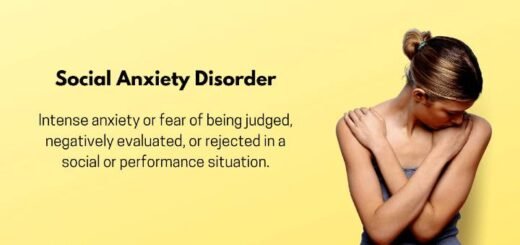Building Support Networks for Social Phobia in New Zealand
Accessing mental health resources is crucial for individuals grappling with social phobia, particularly in New Zealand, where the unique cultural landscape influences support networks. Research on social phobia reveals that effective coping mechanisms often stem from community-based initiatives and peer support systems. Understanding these dynamics is essential for fostering resilience among those affected.
In New Zealand, various resources are available to aid individuals in managing social phobia. Organizations like the New Zealand Social Phobia Network provide valuable insights and research, helping Kiwis navigate their challenges. For more information on social phobia research and support, visit this resource, which highlights the importance of community and shared experiences in overcoming social anxiety. By tapping into these support networks, individuals can find the encouragement and guidance necessary for their journey toward recovery.
Understanding Social Phobia: A Comprehensive Overview
Social phobia, also known as social anxiety disorder, is characterized by an intense fear of social situations, leading to avoidance of interactions that could provoke embarrassment or scrutiny. In New Zealand, this condition affects many individuals, often hindering their ability to engage in everyday activities, from casual conversations to professional interactions. Understanding the nuances of social phobia is crucial. The disorder can manifest in various forms, including fear of public speaking, meeting new people, or even participating in group settings.
Recent social phobia research highlights that the condition often stems from a combination of genetic predisposition and environmental influences. Recognizing the signs and symptoms is the first step toward accessing appropriate support resources. Common indicators include excessive self-consciousness, physical symptoms such as sweating or trembling in social situations, and persistent worries about being judged. For those in New Zealand, local support networks can provide valuable assistance in navigating these challenges.
Local Support Networks: Connecting with the Community
New Zealand boasts a variety of local support networks dedicated to individuals struggling with social phobia. Organizations such as the New Zealand Mental Health Foundation and local branches of the Anxiety Support Network offer resources tailored to those affected by social anxiety. These groups often provide peer support, workshops, and educational materials designed to help individuals understand and manage their condition.
Engaging with these support networks can be beneficial. For example, attending support group meetings allows individuals to share their experiences in a safe environment, fostering a sense of belonging and understanding. Additionally, many of these organizations facilitate online forums where members can connect and exchange coping strategies, further extending the reach of support. By participating in these local initiatives, individuals can build a community that encourages growth and resilience.
Professional Help: Finding the Right Therapist
For many individuals with social phobia, seeking professional help is a critical step in the recovery process. In New Zealand, mental health professionals specializing in anxiety disorders can provide tailored therapy options to address the unique challenges posed by social phobia. Cognitive-behavioral therapy (CBT) is one of the most effective treatments for social anxiety, focusing on changing negative thought patterns and behaviors.
When searching for a therapist, individuals should consider factors such as experience with social phobia, therapeutic approaches, and location. Many practitioners offer sliding scale fees to make therapy more accessible. Online therapy options have also become increasingly popular, allowing individuals to connect with qualified therapists from the comfort of their homes. Resources like the Social Phobia Network can help individuals find qualified professionals in their area, ensuring they receive the support they need.
Utilizing Online Resources and Tools
In today’s digital age, online resources are invaluable for those grappling with social phobia. Websites, apps, and online forums provide a wealth of information and support options. For instance, the Social Phobia Network offers various resources, including articles, coping strategies, and forums where individuals can share their experiences.
Mobile apps designed for mental health can also assist in managing symptoms. These apps often include features such as guided meditations, anxiety management tools, and mood tracking capabilities. Utilizing these online tools can help individuals develop coping mechanisms and build confidence over time. Moreover, online therapy platforms provide convenient access to mental health professionals, which can be particularly beneficial for those hesitant to seek face-to-face support.
Educational Workshops and Programs
Education plays a vital role in managing social phobia, and various workshops and programs are available throughout New Zealand to help individuals develop coping strategies and social skills. Many community centers and mental health organizations offer workshops focused on building confidence in social situations, improving communication skills, and overcoming anxiety.
Participating in these programs can provide practical tools and techniques to navigate social interactions more effectively. For example, some workshops may incorporate role-playing scenarios to simulate social situations, allowing participants to practice responses in a safe environment. Additionally, these workshops often emphasize the importance of peer support, fostering connections that can last beyond the program. Engaging in educational activities not only equips individuals with essential skills but also reinforces the idea that they are not alone in their struggles.
Self-Care Strategies for Managing Social Phobia
Incorporating self-care strategies into daily routines is essential for managing social phobia. Practices such as mindfulness, regular exercise, and maintaining a healthy diet can significantly impact mental well-being. Mindfulness techniques, including meditation and deep breathing exercises, can help individuals stay grounded and reduce anxiety levels before social interactions.
Developing a consistent exercise routine can also be beneficial. Physical activity releases endorphins, which improve mood and reduce stress. Activities like yoga or group sports can provide not only physical benefits but also opportunities for social interaction in a less intimidating environment. Furthermore, maintaining a balanced diet rich in nutrients can support overall mental health.
Combining these self-care strategies with professional help and community support creates a holistic approach to managing social phobia. For more insights on self-care practices, individuals can refer to resources available at the Social Phobia Network.
Advocating for Change: Raising Awareness about Social Phobia
Raising awareness about social phobia is crucial for fostering understanding and reducing stigma surrounding mental health issues. In New Zealand, various campaigns and initiatives aim to educate the public about social anxiety and its impact on individuals’ lives. Advocating for change can take many forms, from participating in local events to using social media platforms to share personal stories.
Individuals can also engage with organizations focused on mental health advocacy, contributing to efforts that promote better resources and support systems for those with social phobia. By sharing experiences and knowledge, individuals can help others understand the challenges faced by those with social anxiety, ultimately creating a more supportive environment.
Engaging with the Social Phobia Network can provide further opportunities to connect with advocacy groups and participate in awareness campaigns. Through collective efforts, society can move toward a more inclusive and understanding approach to mental health.
FAQs
What is social phobia, and how does it affect individuals in New Zealand?
Social phobia, also known as social anxiety disorder, is characterized by an intense fear of social situations and being judged by others. In New Zealand, individuals with social phobia may experience significant distress in everyday interactions, which can lead to avoidance behaviors and impact their overall quality of life.
What mental health resources are available for individuals with social phobia in New Zealand?
New Zealand offers a variety of mental health resources for individuals with social phobia, including counseling services, support groups, and online therapy options. Organizations such as the Mental Health Foundation of New Zealand provide valuable information and access to trained professionals who can help individuals manage their social anxiety.
How can support networks assist those dealing with social phobia?
Support networks play a crucial role in helping individuals with social phobia by providing a safe space to share experiences and coping strategies. These networks can include peer support groups, online forums, and community programs that foster understanding and connection among individuals facing similar challenges.
Are there specific therapies recommended for social phobia?
Research on social phobia indicates that cognitive-behavioral therapy (CBT) is one of the most effective treatments. CBT focuses on identifying and changing negative thought patterns and behaviors associated with social anxiety. Other therapeutic approaches, such as exposure therapy and mindfulness practices, may also be beneficial.
How can I find a qualified mental health professional in New Zealand?
To find a qualified mental health professional in New Zealand, individuals can consult their general practitioner for recommendations, search online directories, or contact organizations such as the New Zealand Psychological Society. It’s important to choose a professional who has experience in treating social phobia specifically.
What self-help strategies can I use to manage social phobia?
Self-help strategies for managing social phobia include practicing relaxation techniques, engaging in gradual exposure to feared social situations, and developing strong coping skills. Additionally, maintaining a healthy lifestyle through regular exercise and a balanced diet can contribute to overall mental well-being.
Can online resources and apps help with social phobia?
Yes, numerous online resources and mobile apps are designed to assist individuals with social phobia. These tools often provide guided exercises, educational materials, and community support features that can complement traditional therapy and help users develop coping mechanisms in a flexible, accessible way.
References
- Social Phobia Support Network – A dedicated resource for individuals with social phobia in New Zealand, offering support, information, and community connections.
- Mental Health Foundation of New Zealand – Provides information and resources on mental health issues, including social phobia, and offers support networks throughout New Zealand.
- New Zealand Ministry of Health: Mental Health and Addictions – Official government resource outlining mental health services and support available across New Zealand for those in need.
- Australian Centre for Posttraumatic Mental Health – Offers resources and research on mental health, including support for social anxiety and phobia, with relevant information applicable to New Zealand.
- Beyond Blue – An Australian organization that provides support for mental health issues, including anxiety and phobias, with resources that can be beneficial for New Zealanders.




